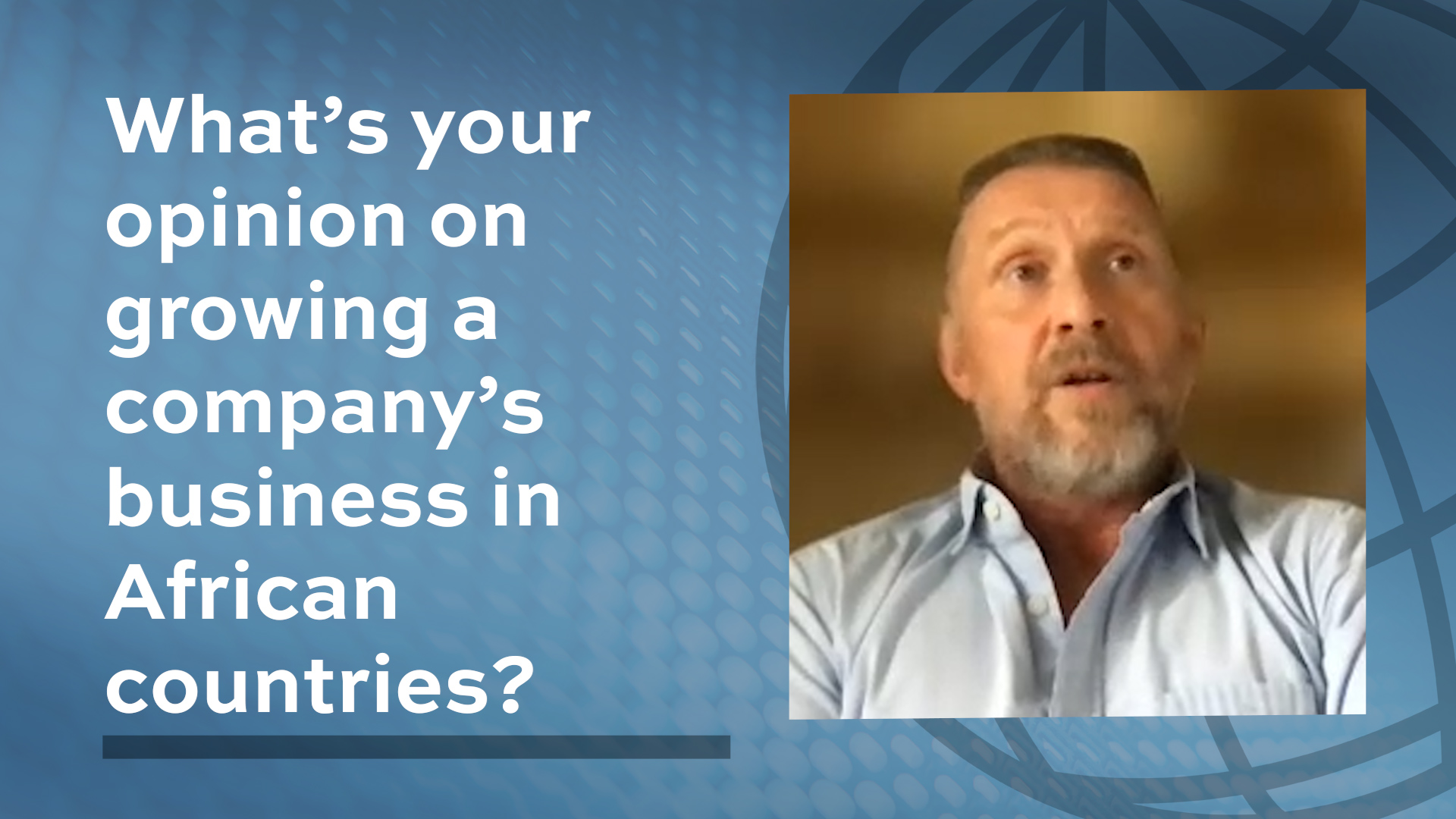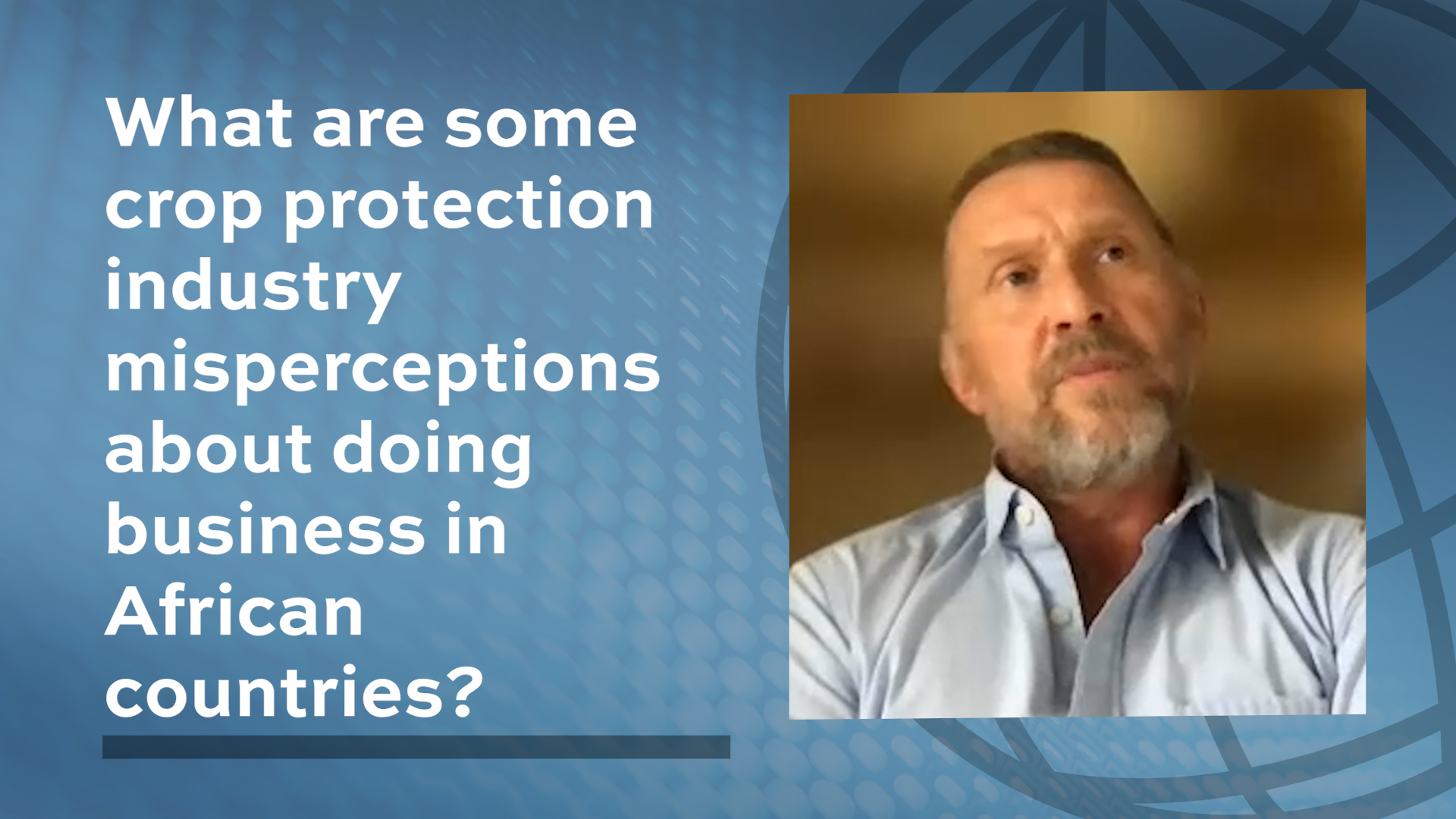Doing Business in Africa with Stephen Pearce

AgriBusiness Global sat down with Stephen Pearce, who is recognized across multiple industries as an expert practitioner in strategic sourcing, procurement, business development, M&A integration, and alliance development.
Pearce is the co-owner and managing partner of Chemovateq Swiss AG, which owns Bancella Limited serving the agricultural industry across Africa and the Middle East. He shares his experiences, tips, and perspectives of business in Africa.
ABG: What are some important points agrochemical industry players are missing doing business in Africa?
SP: I think a lot of people fail to recognize the diversity of the African continent, and indeed the Middle East. There are 54 sovereign states in Africa (and 18 in the Middle East) with numerous cultural, governmental, regulatory, and agronomic differences. It is not a one solution fits all by any means.
If you want to do successful business in Africa, you need to align yourself with people who know Africa. If you don’t have or know the right people on the ground, you can fail quickly and many do. But if you make those connections, Africa remains a huge opportunity.
All too often Africa, for many companies, is considered too complex and remains a lower order of priority and doesn’t receive the attention it deserves based on the growth potential but value the chain.

ABG: What do you think Africa’s role will be in future food production?
SP: From a global food production perspective, when you look at the urbanization of Africa, the population growth, the number of people under the age of 25, and the amount of land that can be cultivated and put into full productivity — it makes Africa essential in supporting the need for increased food output. For the food development required by 2050 to support a predicted population of 9.8 billion people, Africa is both a huge and essential opportunity.
Moreover, and not to belabor the point, you’re only going to get that right and succeed if you’re choosing the right partners and making sure you align with the right in country value chains and provide those value chains with new and innovative crop solutions and technologies.
ABG: How is agtech being used in African countries?
SP: There are some great examples of tech and agtech deployment in Africa in terms of people bringing products into the African continent that that are on or ahead of the curve. However, and all too often, these technologies are not integrated into aggregated program platforms.
Whilst a crowded area, we see the digital space as being a fundamental enabler in making technology aggregation work in value chain and importantly in the field or greenhouse.
ABG: What about many African countries’ reputations for government corruption and civil wars?
SP: Africa often gets a very bad rap because of past failures. This reputation often makes people cautious, which is understandable, however companies wanting to enter the African market, particularly with new technologies and innovative formulations, it is important to be aligned with those who have experience of the where, the how, and with whom. Whilst there is no place for corruption anywhere, we’d all be naive in the extreme if we didn’t think it exists in Africa just like anywhere else in its various guises.
Regarding instability where conflict is or has been involved in 2022, 11 of 15 of the world’s most fragile and unstable countries are in sub-Saharan Africa. The additional challenge of the Russia-Ukraine war as well as current economic and inflationary pressures, all these issues bring additional pressures on some of the poorest countries in the world with respect to food insecurity. COVID-19 created food insecurity issues for around 133 million globally. It is estimated that as both a direct and indirect result of the conflict in Ukraine, this number will rise to 388 million globally. Several African nations will sadly be affected to some degree.
Overall, the opportunities in Africa remain huge. It’s a big and tremendously diverse continent. Aligning yourself with the right people and structuring market entry in a targeted, aggregated, and sustained way, companies will be able to execute on a strategy that will offer more significant long-term and meaningful contributions to African growers and in turn their own business plans.
You can meet Stephen Pearce in person at the AgriBusiness GlobalSM LATAM Conference and Summit on 2-3 August 2022 in Panama City, Panama, where he’ll be presenting on biologicals.
For more interviews with Pearce, read an exclusive interview with him about current strains on the agrochemical industry and his tips for success in AgriBusiness Global DIRECT’s June 2022 issue.






